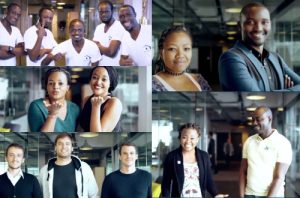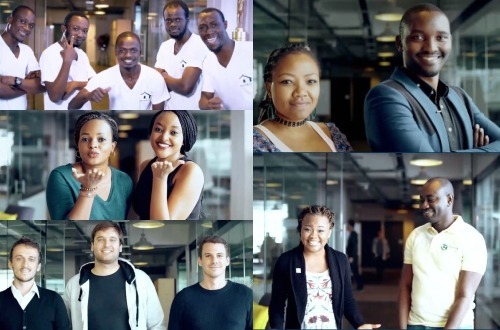
Fintech startups on the African continent are on the rise. According to the Disrupt Africa African Tech Startups Funding Report released last year, fintech startups were more likely to attract investors than other types of startups.
Investors are not the only ones to recognise the significant returns that many of the startups can achieve. An increasing number of regional and international accelerators and incubators are throwing their focus on fintech startups and are playing their part in helping them to survive and scale.
In 2016 Barlays Africa expanded their global accelerator programme to Africa. Now in its second year, the Barclays Africa Fintech Accelerator Programme in partnership with Techstars Africa, follows in the footsteps of other successful editions of the programme including New York, Tel Aviv and London.
Each year 10 African fintechs are chosen to participate in the 13-week programme where they receive mentoring, upskilling as well as opportunities to access funding.
The inaugural programme included startups across the continent such as: Asoriba (Ghana), a church management software; BenBen (Ghana), a provider of blockchain-powered land services; Beyonic (Uganda and United States), a mobile payment service; iNuka Pap (Kenya), a provider of financial services; Jamii (Tanzania), a micro-health insurance product; ReAble (Lebanon), a finance management app; SimbaPay (Kenya and Nigeria), a money transfer service; Social Lender (Nigeria), a social lending solution; Tech4Farmers (Uganda), an online farming solutions platform; and WizzPass (South Africa), a parking ticket solutions app.
The programme typically ends with a “Demo Day” with each startup founder being allowed to demonstrate their startup to an audience made up of investors, industry experts, fintech specialists, as well as Absa and Barclays executives.
Some startups from the inaugural class have already, in a relatively short period, benefited from their participation in the programme – from successfully raising funding and expanding into new markets to securing fruitful partnerships and winning awards, here are 5 fintech startups that have been making great strides since.
Wizzpass – South Africa
Wizzpass was launched in mid-2015 by founders Bradley Hornby, Ulrich Stark, Tyron Fouche, Francois Stark and William Saunders, and was the only South African startup to be chosen for the inaugural programme.
The startup created an app which eliminates the need to pay for parking with cash or cards in shopping malls, airports, commercial property or office parks. Instead, users can do so using their smartphones when they exit.
Where Are They Now?
Following the conclusion of the programme, Wizzpass secured funding from the Barclays Seeker Fund. They have also partnered with companies like Sasol, Ogilvy & Mather, Blend Property Group, Capital Point Properties, and Aurecon, as well as the banks. CEO Hornby had this to say about being able to strike up successful partnerships with the banks.
“Banks in South Africa are some of the most innovative in the world, and this focus on innovation makes them approachable if you are coming to them with a new idea that could benefit their customers.
“Having real conversations about your products or service with a bank can also provide you with a lot of insight and learning on what you need to execute on before the bank will work with you. That feedback from some very smart people is a great asset – especially for younger startups.”
Wizzpass went on to participate in the Actuarial Society’s 2016 Convention and London Fintech Week, and the startup’s success securing funding was selected as one of the top five South African startup developments for 2016 by Disrupt Africa.
iNuka Pap – Kenya
iNuka Pap is a mobile platform founded by Waweru Kuria. They are a mobile platform that partners with cooperatives enabling them to deposit, withdraw and access instant micro-loans as well as access other credit services.
Where Are They Now?
Since its launch in 2015, iNuka Pap has received support from a number of institutions including a $250,000 angel round investment from the Unreasonable Institute and angel investors in Silicon Valley, Uganda and Kenya. They also participated in the Actuarial Society’s 2016 convention.
iNuka also won the Seedstars Nairobi competition and was one of two startups that represented Africa at the Seedstars 2017 global finals in Switzerland.
iNuka Pap also went on to sign an insurance deal with the British-American Investment company Britam, which will see them offering Kenyans “automatic medical insurance cover” once they have saved a specific amount on the platform. In 2016 they were voted among the top 100 Fintech Startups by Fintech Africa, a South African organisation advancing Africa’s financial services sector.
Asoriba – Ghana
Asoriba is a platform that aims to simplify church administration, data management and mobile communication.
It was founded by Saviour Dzage, Jesse Johnson, Patrick Ohemeng Tutu and Nana Opoku Prempeh-Agyeman who met at Meltwater Entrepreneurial School of Technology (MEST Africa). Asoriba launched in 2015, and a year later they were chosen for the Barclays Accelerator Programme.
Where are they now?
Asoriba received their first round of seed funding and completed a proof of concept during the programme, before securing additional funding after the programme concluded.
Earlier this year they launched their mobile app.
Asoriba also announced that they are expanding to Kenya and Congo which according to Agyeman-Prempeh are very critical countries and markets for them.
“Once we are in Kenya, we can easily get into Tanzania. Nigeria is very interesting because we already have a presence there through our partners, Interswitch, and we plan to focus and grow operations there because Lagos alone has about 20 to 22 million people, it’s such a big city,” said Agyeman-Prempeh.
They also have plans to expand beyond the continent.
“For America and Europe, especially the UK, we have a lot of Africans in the diaspora who have churches with branches there. These churches have similar services, cultures and also challenges so if we’re able to bring value to them here in Africa, we can also serve them in the UK or US. For example Lighthouse and Pentecost churches – they have similar branches all over the world.”
Asoriba took to the stage at the 2017 Facebook Developers Conference in California, USA, an event which brings together developers and businesses to explore the future of technology. Agyeman-Prempeh also spoke alongside WizzPass and Inuka Pap at the Actuarial Society’s 2016 Convention.
Jamii/bimaAFYA – Tanzania
Jamii is the brainchild of founder, Lilian Makoi. Launched in 2015, the startup provides micro-health insurance for the informal sector which can be accessed via a mobile handset.
Where Are They Now?
Jamii has formed strategic partnerships with Kenyan insurance company, Jubilee and cellphone service provider, Vodacom Tanzania to enable mobile premium collection and cashless facilities in over 400 hospitals.
The startup plans to expand to five other African countries this year, namely Kenya, Uganda, Ghana, Nigeria and South Africa, according to Disrupt Africa.
Like iNuka Pap, Jamii won their country’s edition of the Seedstars competition and represented both Tanzania and Africa in Switzerland at the Seedstars global final.
Social Lender – Nigeria
Combining social media and finance, Bade Adesemowo and Faith Adesemowo founded Social Lender, a lending platform that offers small cash requests to members of banks’ social media communities with valid accounts. Cash requests are guaranteed based on your social profile and reputation.
Where Are They Now?
In 2016 the lending platform expanded its services to South Africa, which was announced by the CEO, Faith Adesemowo, during the Barclays Techstars Demo Day presentation in Cape Town.
This year they spoke at several events, including the Seamless Africa Conference in Cape Town, and the Fintech Fair in Tanzania.
Last month the class for 2017 was announced. They are Flexpay (Kenya), a goods management system; Howler (South Africa), an event commerce platform; Spatialedge (South Africa), a consumer analytics and targeting platform; Abe.ai (USA), a provider of artificial intelligence solutions; The Sun Exchange (South Africa), a blockchain-powered solar finance startup; Byte Money (South Africa), a financial management solution; Avenews-GT (Israel), an agricultural trading platform; FOMO Group (South Africa), alternative payment solutions for travelers; Kapitalwise (USA), an automated investment provider targeting millennials; and eCOIDA (SouthAfrica), an online insurance provider.






